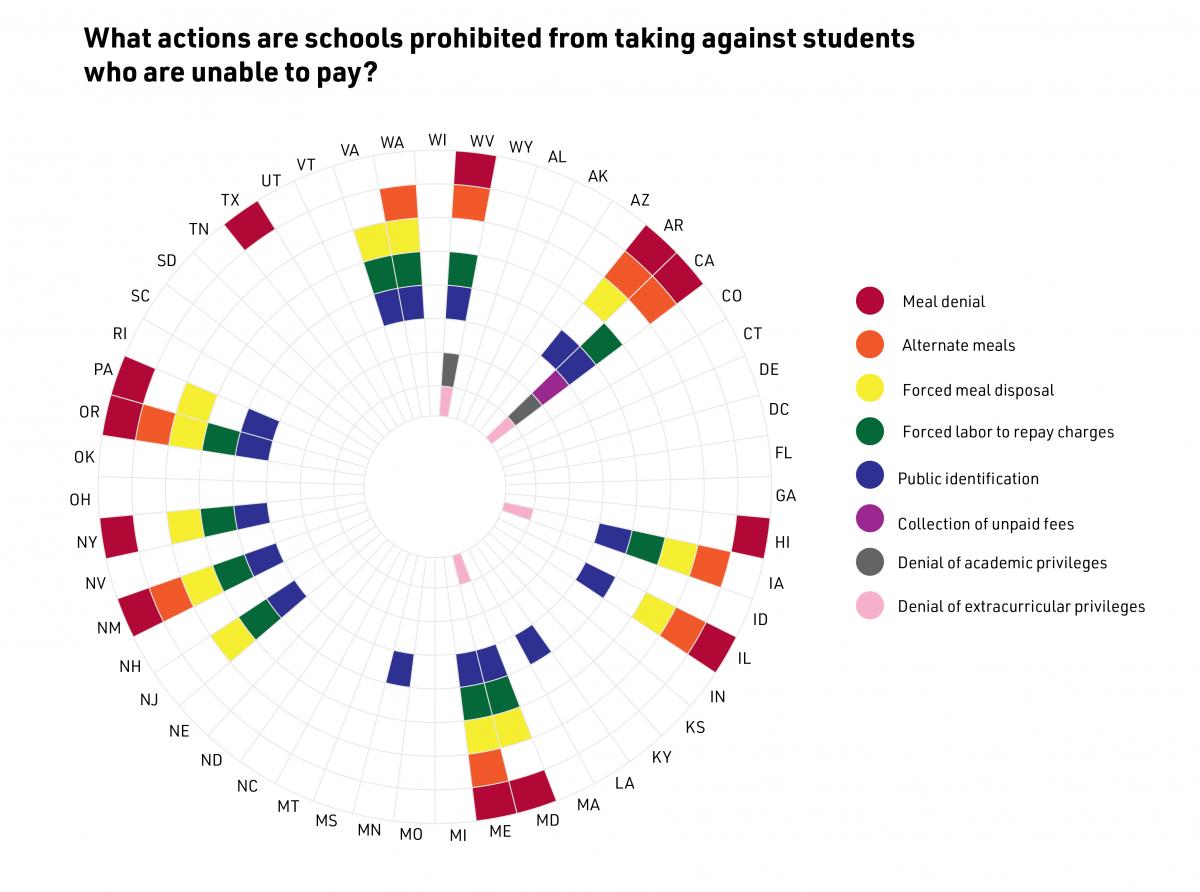As a federal program to serve meals to all US public school students during COVID-19 ends on June 30, the consequences of unpaid school meal debt will resurface for the millions of students nationwide facing food insecurity.
New data released today on LawAtlas.org by researchers at the Temple University Beasley School of Law capture details of state unpaid school meal policies, revealing sparse protections for students who cannot pay for meals at school.
Fewer than half of all states – only 19 as of April 2021 – regulate how schools may address unpaid meal charges, according to the data. This can mean the student could be denied access to meals and academic and extracurricular activities, be publicly identified, or forced to work to pay off the debt. State policies vary widely, and absent state guidance, local education agencies that manage and regulate may adopt their own policies, which can also be wide-ranging.

Even fewer states have laws that require parents or guardians to be notified or involved when a student may have insufficient funds. Maryland is the only state with a law that requires a parent or guardian to be notified of insufficient funds before a student incurs the debt.
“These data show us what the landscape will look like when the federal funding for free school meals ends next month,” said Kristen E. Murray, professor of law at the Beasley School of Law and the lead researcher on the project. “It’s a landscape where we create barriers to the very foundations of what students need to learn and be successful, and even worse than that, where we then punish them if they cannot meet that burden.”
Legislators in California, Colorado, and Maine have recently undertaken efforts to make free school meals permanent following the end of the federal subsidies.
This policy surveillance captures not only what actions a school is prohibited from taking against students who cannot pay, but also how the school can address unpaid charges, and processes to address violations of the meal charge policy by schools.
There are 12 states with laws that regulate what actions school may take, including employing debt collectors, setting repayment plans, using charitable funds, or charging collection fees.
Currently only two states — California and Maine — provide a process for meal charge policy complaints to be investigated by the state educational agency.
Before the pandemic, as many as 75% of US school districts had unpaid school meal debt, according to research by the School Nutrition Association.
LawAtlas.org is maintained by the Center for Public Health Law Research at Temple University’s Beasley School of Law.
Contact:
Bethany Saxon
215-204-2134
bethany.saxon@temple.edu
